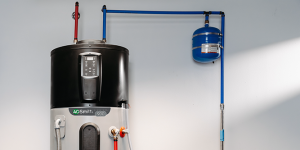Our experts answer readers’ personal loan questions and write unbiased product reviews (here’s how we assess personal loans). In some cases, we receive a commission from our partners; however, our opinions are our own.
- Adding a pool to your home can be one of the most expensive home-improvement projects you undertake as a homeowner.
- Funding options include a pool loan, tapping into the equity in your home, or financing through the contractor or pool manufacturer.
- A new pool will likely add anywhere from 5% to 8% to your home’s overall value.
A backyard pool can greatly enhance the enjoyment you get from your home and boost its value at the same time. However, adding a pool is one of the more expensive home-improvement projects you can take on.
Pools are expensive. Luckily, there are several pool financing options available that can help you cover the cost.
What’s the best way to finance a pool?
Pools come in all shapes and sizes. The price tag generally starts around $20,000 for the in-ground variety and can go as high as $100,000 or more, depending on a number of variables.
The ways one can finance a pool are equally varied. We will focus on the five most common options available to homeowners:
- Personal loans for pool financing
- Home equity loan
- Home equity line of credit
- Contractor financing
- Manufacturer or dealer financing
Best pool financing options
1. Use a swimming pool loan
A pool loan is a popular option for financing a pool. It is a personal loan that a lender markets specifically as a means to pay for the purchase and installation of a swimming pool.
Since they are personal loans, you can obtain a pool loan from a bank, credit union or online lender. Whichever lender you choose, you will receive a lump sum that you can put toward the pool and pay off in fixed monthly installments, with interest, over a specified term.
“Pool loans typically have a term of five to 15 years, with the interest rate generally contingent on the borrower’s credit score,” says David Krebs, a mortgage broker in Florida. “A score of 650 or higher is usually desired for better interest rates.”
You obtain a swimming pool loan the same way you get a personal loan for any other purpose. Many lenders will allow you to prequalify for a loan with no impact on your credit score, allowing you to see the rates and terms they are likely to offer before you submit out a full application.
Next Step: See if you’re prequalified for a loan without impacting your credit score >>
2. Finance your pool with a home equity loan
A home equity loan is another option for financing your pool. This can be best for those who have significant equity built up in their homes. With a home equity loan, you borrow a lump sum based on the value of your home, minus the amount owed on the mortgage. Your home serves as collateral for the loan. The repayment terms on a home equity loan can range from five to 30 years, and the interest rate is generally fixed.
Home equity loans are attractive for those who have a good amount of equity built up in their homes as they often offer lower interest rates than personal loans and can frequently allow you to borrow far more than with other forms of financing. However, it is important to remember that defaulting on a home equity loan could result in foreclosure, so it carries considerable risk.
Next step: See Insider’s picks for the best home equity loans >>
3. Pay for a pool with a home equity line of credit (HELOC).
Like a home equity loan, a home equity line of credit leverages the equity built up in your homes. Tapping into your home’s equity with a HELOC is similar to using a credit card, though a HELOC only covers a fixed period of time, known as the draw period. HELOCs usually have variable interest rates and the repayment terms can be longer than that of home equity loans.
Note that the draw period may last longer than the pool installation, and you could face additional fees for closing the line of credit early. It’s also important to note that interest rates on a HELOC, and thus monthly payments, can fluctuate over time.
Next step: See Insider’s picks for the best HELOC lenders >>
4. Use contractor financing for your pool
Many pool contractors offer their own financing options to help homeowners pay for their pool installations. These programs are typically arranged through partnerships with lending institutions. Contractor financing can be a convenient option since the contractor manages the application process and the loan terms, but homeowners should be cautious as there is the potential for conflicts of interest.
It’s crucial to carefully review the terms and conditions, including interest rates and fees, to ensure that you are getting a favorable deal. Comparing contractor financing offers with other financing options will help you make the most informed decision.
Next step: See Insider’s picks for the best home-improvement loans >>
5. Finance your pool through the manufacturer or dealer
Some pool manufacturers or dealers offer financing directly to customers. They may have partnerships with lending institutions or offer in-house financing options. Similar to contractor financing, a loan arranged via a manufacturer or dealer can provide a streamlined process since the financing is integrated with the pool purchase. However, the same caveats apply. It is important to carefully review the terms, interest rates, and fees associated with the financing offer. Comparing offers from different manufacturers or dealers and exploring other financing alternatives can help you find the best deal.
Is adding a pool a good investment?
Most experts agree that the addition of a pool adds between 5% and 8% to the overall value of a home, though the actual number may vary depending on location, climate and other amenities that may be added during the installation of the pool, according to Carter Seuthe, CEO of Credit Summit.
“A pool will almost always add value to a home, regardless of type of pool, housing market, or local climate,” Seuthe says.
However, a pool will also increase your homeowners insurance premium. Insurers consider pools “attractive nuisances” that pose a risk, especially to children. In many states you can be held liable for injuries and death.
Pool financing FAQs
A typical pool loan can range between three to five years, though some can stretch to as many as 20 years. It all depends on the cost of the projects and your individual financing needs.
To qualify for a pool loan you typically need a credit score of 680. If you have a higher score you can often get more favorable terms, like lower interest rates.
A swimming pool installed for medical reasons could increase your tax deductions by $12,000 or more, giving you a tax savings of $3,000 or more depending on your tax bracket, according to Engage Advisors.
NOW WATCH: Popular Videos from Insider Inc.
Loading…
Read the full article here














